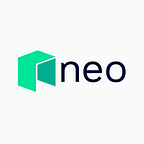The Black Sea Community Hackathon Review
Blockchain technology is quickly evolving and exploring promising areas of cross-sector integration. The government of Georgia, like many others, is paying close attention to blockchain technology and the NEO ecosystem in particular.
A hackathon was jointly held by the NEO Black Sea Community and the Economic Department of Georgia from September 28th — 30th to facilitate blockchain applications applicable for use in the public sector. The event was designed to tap into community talents and use blockchain technology to boost local economic development, lift the poverty line, and improve government work efficiency.
13 teams made up of 20 people signed up for the competition, with seven teams submitting eligible projects and presenting them on the last day of the hackathon. The final candidates were mostly students from local universities and blockchain developers from neighboring countries, with many of the submissions complete in conception, coding, and presentation.
The judging panel consisted of five members including Yasen Mihailov and Zdravko Georgiev from the Bulgarian NEO development community, Tom Zhang — an NGD developer, Chris Dave — Effect.AI CEO and Elene Grigolia — representative of National Agency of Public Registry Georgia.
The entries were fairly scored by the five judges across four dimensions — Idea, Completion, Applicability and Originality, each with a maximum score of 10 points. The entries were ranked using the combined scores of the four dimensions, with prizes awarded to the three highest scores.
1st Place
First place was awarded to GeoToken (GEO), a program aiming to promote tourism. As the tourism market of Georgia continues to expand, the tourism industry has become of much concern to the Georgian government. The project uses blockchain technology to solve pain points such as currency exchange and local attraction discovery.
GeoToken is based on a NEP-5 smart contract and an application that enables quick payment through QR code scanning. Tourists will be also be awarded credits for leaving reviews on local attractions in realtime. The app implementation may require government-level systematic reformation, and the credit system may have commercial uses.
2nd Prize
Second place was awarded to People’s Voice, which is a voting system implemented on blockchain. The dApp uses public and private key encryption to ensure the authenticity of citizen votes, and aims to encourage engagement via polls and referendums.
The project was given a high score because of its potentially high applicability, easy implementation, and its completeness in design and coding.
3rd Prize
Third place was awarded to Vakhtang Gogokhia, CEO of Golden Fleece, who decided to use the NEO blockchain for diploma record keeping.
The system seeks to record student diploma information on blockchain, using QR codes and a query system to access specific records. The smart contract is largely complete, though the administration component is still to be finished. This facet of the project needs to consider the consistency between university and government information, as well as the reliability and trustworthiness of their record keeping processes.
Catch up with NEO’s update:
Website:https://neo.org/
Github:https://github.com/neo-project
Reddit:https://www.reddit.com/r/NEO/
Discord:https://discord.io/neo
Twitter: https://twitter.com/NEO_Blockchain
Facebook: https://www.facebook.com/NEOSmartEcon/
